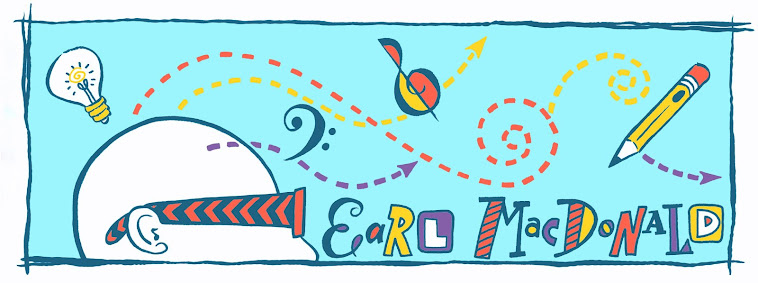I am a musician and not a reviewer, but all week long I have been mulling over my response to the “One For All” concert I attended last Friday night at the Wadsworth Atheneum in Hartford.
The guys in “One For All” certainly play well. Their solos were very impressive. It just seems strange to me that they have collectively decided to rigidly imitate Art Blakey’s Jazz Messengers (specifically from the 1961 – 64 era). One of their song titles, “Our Father, Who Art Blakey” states this point clearer than I could articulate in several paragraphs. As much as I love that music, it happened almost 50 years ago. Isn’t it time to move on?
In an educational setting I think it is imperative that students study the music from past generations. I wholeheartedly subscribe to Clark Terry’s catchphrase “Imitate, Assimilate, Innovate”. In fact, I insist that all my undergraduate students thoroughly study the music played by Blakey’s bands (among many others) --- but it doesn’t end there. The members of “One for All” are all over the age of 40. At this point shouldn’t they be past the “imitate” and “assimilate” phases and be onto innovation?
Historically, hasn’t jazz always been synonymous with innovation, experimentation and “pushing the envelope”? Has jazz really become “museum music” like its classical counterpart? Have we reached a point where jazz must adhere to strict performance practice guidelines so that there is no stylistic deviation from the designated era a band is copying?
Philosophically, I see no difference between “One For All” playing in the style of the Jazz Messengers and the Jazz at Lincoln Center Orchestra playing Ellington and Fletcher Henderson charts. It’s bass ackwards. Sure, “One For All” plays original compositions, but it is apparent that the composers are pretending Art is still with us and it is still 1962. It would perhaps be less confusing to me if they would fully embrace their identity as an Art Blakey “ghost band” and simply play the music of Freddie Hubbard, Wayne Shorter and Curtis Fuller.
Jazz is art music. Artistic imitations don’t interest me. If I want to see cubist paintings, I’ll seek out work by Picasso or Georges Braque, not some present-day mimic. As well as they play; I’d almost rather stay home and listen to my “Buhaina’s Delight”, “Caravan” and “Free For All” albums. I think we need originals in an era where jazz is struggling to find and maintain an audience.
Does anyone else agree or am I over-reacting? Do ghost bands and rigid performance practice guidelines have a place in today’s jazz scene?


Hey, Earl. I get what you're saying, but here's maybe the angle *for* what they're doing. Listening to all those great bands on records or iTunes is great, but live music is so much different. What would you give to be able to spend the night actually listening to Parker? Maybe they're trying to do the next best thing? They could innovate (I heard Terry a bunch of times - such fun), but they decided to try to give people something more like the original, so they could hear what it was like. Don't know for sure, but maybe.
ReplyDeleteWith you on this Earl.
ReplyDeleteSpot-on, Earl -- and you didn't mention that the musicians are all white, which introduces a problematic aspect of appropriation at a certain level ...
ReplyDeleteI don't begrudge the guys for playing the music, but considering the badness of those cats it sure would be nice to see them stepping into the 21st century.
All of you are missing the point. Who else would even have what it took to even begin to play music in the style of Art Blakey? I've heard one for all a lot and I don't think I've ever not been impressed by them. Moreover, I've never got the feeling that they have become collectively complacent in playing the style of music that they play. Would you rather hear a band swinging hard and playing songs that you'll actually remember how they go, or would you rather hear some saxophonist squeek and squack for two hours just to "push the envelope"?
ReplyDelete